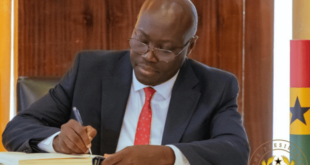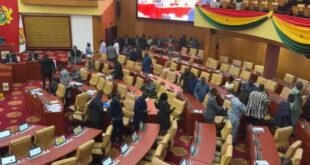The Supreme Court has dismissed a review application challenging its earlier judgment on the constitutionality of Parliament’s passage of the Human Sexual Rights and Family Values Bill, commonly known as the anti-gay bill.
The decision came after the applicant, Richard Dela Sky, withdrew his application through his lawyer, Paa Kwasi Abaidoo, during proceedings on Wednesday, February 26, 2025.
A nine-member review panel, presided over by Justice Paul Baffoe-Bonnie, officially struck out the case following the withdrawal. However, the court expressed dissatisfaction with Sky’s absence from the proceedings.
Chief State Attorney Sylvia Adisu requested that costs be imposed on the applicant. Justice Prof. Henrietta Mensa-Bonsu also questioned the fairness of convening nine Justices only for the application to be withdrawn, while Justice Samuel Adibu-Asiedu suggested that, as a lawyer, Sky should have been present in court.
However, Justices Emmanuel Yonny Kulendi and Issifu Omoro Tanko Amadu opposed awarding costs, citing the public interest nature of the case. Ultimately, the panel struck out the case, with the presiding judge voicing strong disapproval of the applicant’s absence.
Background of the Case
Sky’s application followed the Supreme Court’s unanimous dismissal of his initial petition on December 18, 2024, which challenged the constitutionality of the legislative process concerning the anti-gay bill. The court ruled that the bill’s passage did not violate constitutional requirements, leading Sky to seek a review.
The Human Sexual Rights and Family Values Bill seeks to criminalize activities related to the promotion and advocacy of LGBTQI+ rights in Ghana. If enacted, it would impose penalties on individuals who fund or support LGBTQI+ initiatives or offer indirect assistance.
The bill, which was passed by Parliament on February 28, 2024, has sparked intense national debate. Proponents argue it upholds Ghanaian cultural and moral values, while critics warn it infringes on human rights and could lead to discrimination.
The Supreme Court had previously ruled that legal challenges to a bill’s constitutionality can only be made once it becomes law. With the review application now struck out, attention shifts to whether the bill will receive presidential assent.
 GhArticles.com Every News in Detail
GhArticles.com Every News in Detail




